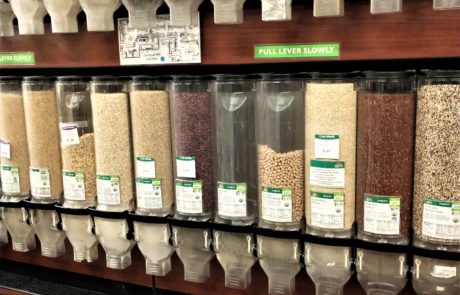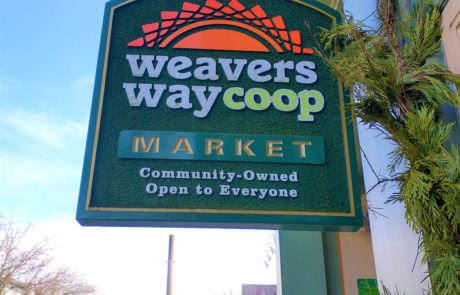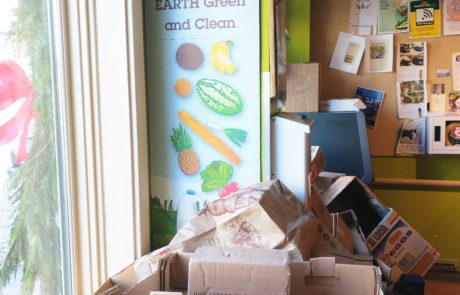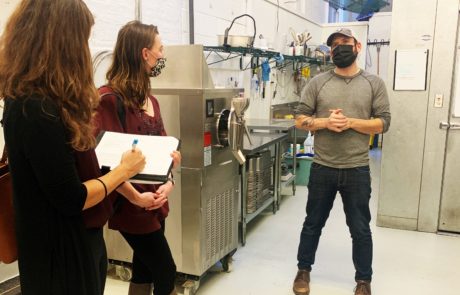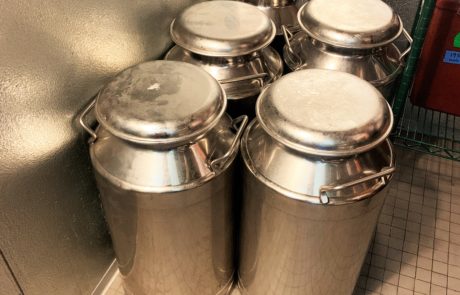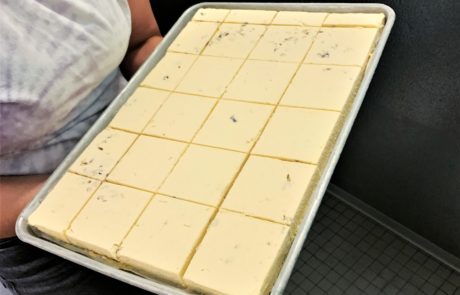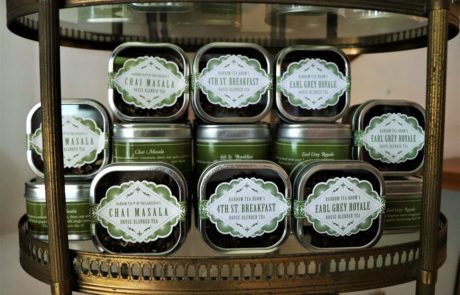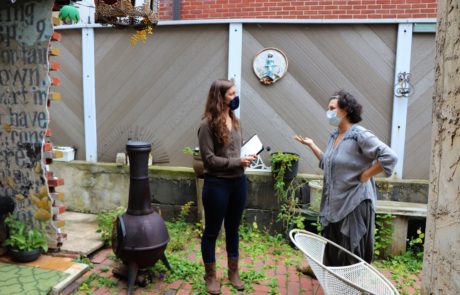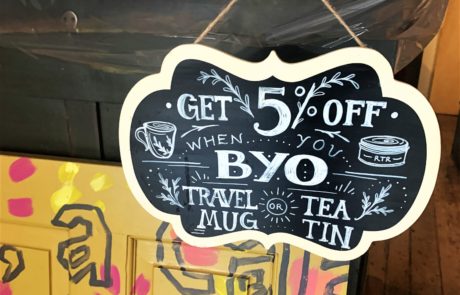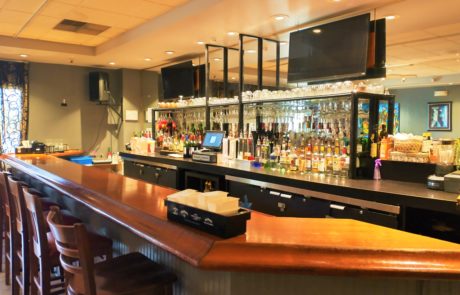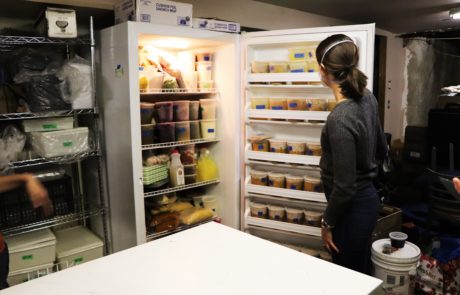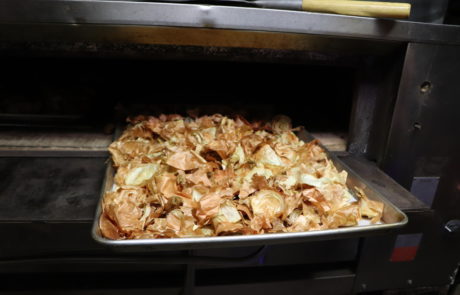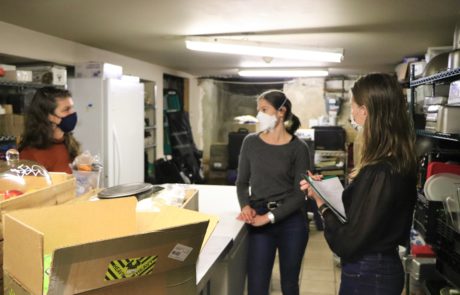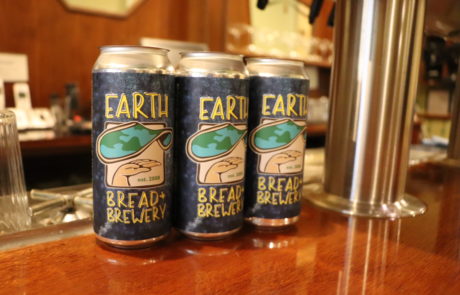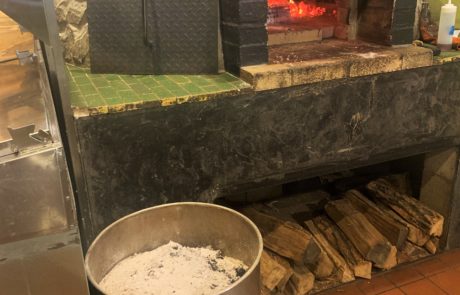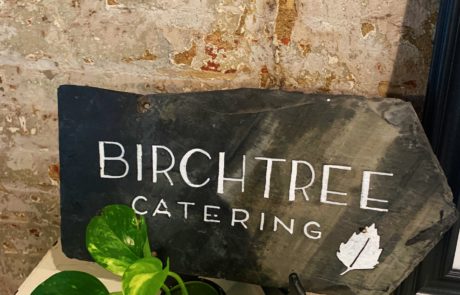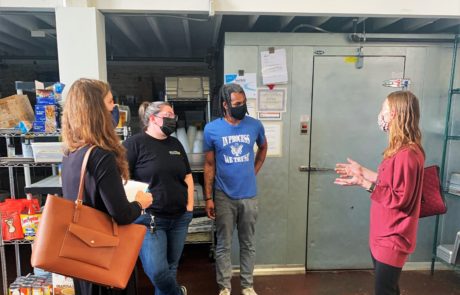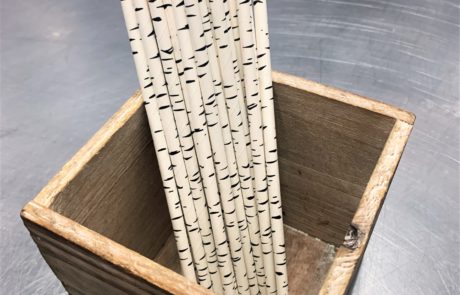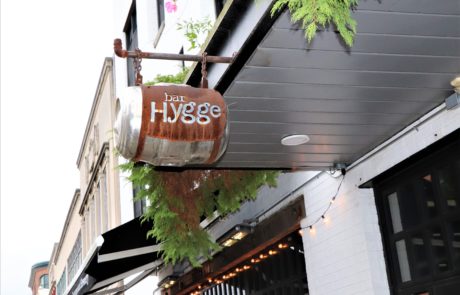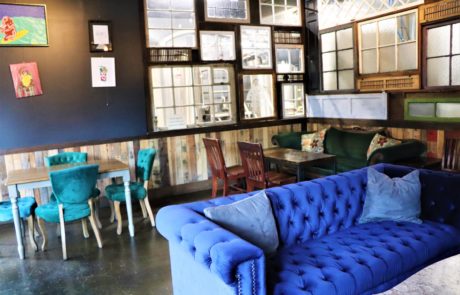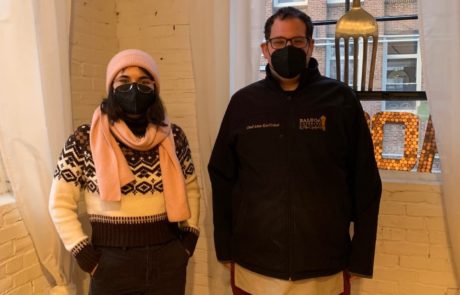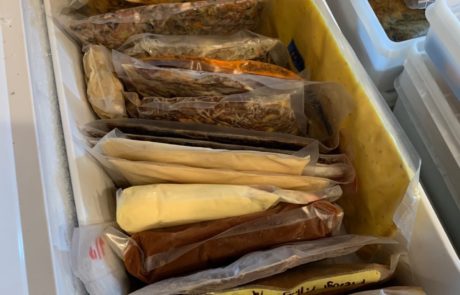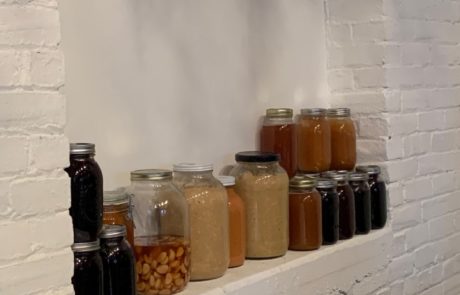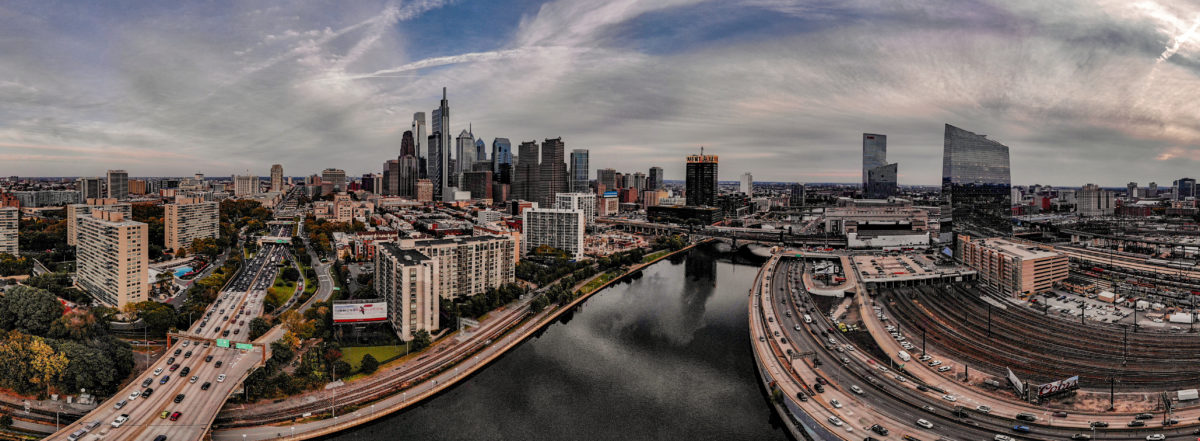
This challenge was a unique opportunity for local food businesses to receive FREE food waste reduction guidance. They collaborated with the City of Philadelphia to work towards achieving zero food waste, and help shape sustainability programs and policy down the line.
Applications for the next cohort are currently closed
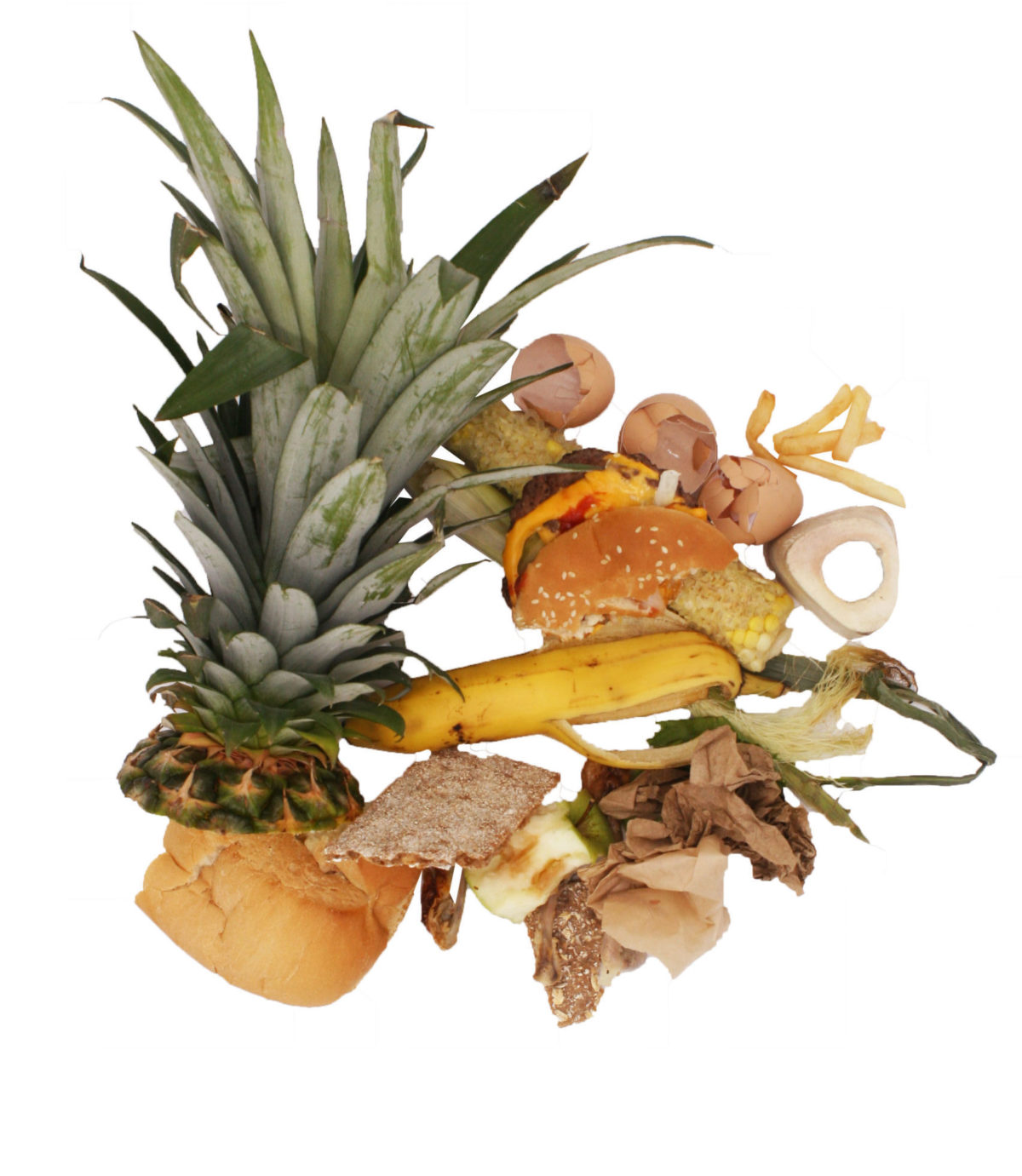
Meet Our Participants!
Click any photo below to see the full gallery from our visits:
Participant Testimonials
“We used the challenge to organize and research how all of our waste is handled, including our compostable disposable wares. The Center for Ecotechnology helped us to discover that our region doesn’t have the infrastructure to dispose of compostable bioplastics, or CPLA/PLA plastics, which are items like forks and cups that look like plastic that are becoming more and more popular. So while we were purchasing and serving on “compostable” products, and sending them to a commercial composter, the reality is that they’re still heading to the landfill. We’re now much more knowledgeable about the lifecycle of CPLA/PLA plastics and are working on plans to change our purchasing choices, opting for reusable items whenever possible.”
“We are working on Musi Provisions, a line of specialty pantry items that let us further our vision of zero waste. Utilizing ingredients that would otherwise be wasted (like citrus rinds & herb stems) are given delicious second lives as marmalades, flavoring salts, and oils. Making these products available for people to buy is our way of sharing our mission with those around us. We want to inspire others to think critically about their food, where it comes from, and where it goes after it’s tossed out too soon.”
“The feedback about how best to record our waste streams and tips on improving our methods was very constructive. It helped me and my staff to understand how the City of Philadelphia’s waste log works. It also helped me to realize how important it is to quantify our waste, until we know what we are actually dealing with, being sustainable is just a fantasy, with data we make it a reality.”
“We learned a lot through the weeks. Our biggest change to come from it was what we compost! We learned that we can compost so much more than we originally thought. Initially, we were unsure about food waste that contained dairy, but once we learned that we could compost our ice cream sandwich trimmings (which are a mixture of cookie and ice cream) that really was a game-changer. We cut on average anywhere between 60-100 trays of ice cream sandwiches a week, so that was a lot of trimmings that we were originally just throwing in the trash. We really appreciated being a part of this experience and everything we learned along the way. We will definitely be using all of our newfound knowledge to move forward in our business with a more conscious mind.”
“Participating in the food waste challenge was an eye-opening experience. We have always worked very hard to make Bar Hygge as sustainable as possible – from upcycled materials throughout the restaurant, to compostable takeout boxes and using straws made out of hay, we try to do it all! Through this challenge, we were able to focus on practices that we already have in place and improve on them. Something as simple as composting all of the paper towels from the bathrooms instead of just throwing them in the trash was an easy improvement, but will make a difference in the long run! Reducing and diverting waste is something that can get lost in your day to day in a busy restaurant, but this challenge gave us the chance to really take a look at all that we do and make it even better!”
“What surprised us most is the other businesses that exist in Philly that have helped us work towards zero waste, primarily Bottle Underground. With a little extra effort, we were able to divert all glass from our recycling bin, which we learned doesn’t get recycled at all. As a BYO, this is a LOT of glass. It really goes to show that you cannot do this whole zero-waste/sustainability thing alone. There’s such a supportive and inspired network to lean on and get motivated by. We’re excited to continue these efforts through the implementation of our composting program! We just applied for the Zero Waste Microgrant. But, aside from that, implementing an inclusive composting program (inclusive meaning meat/bones/dairy/etc.) is our next priority. We are hoping to engage our neighbors and those who dine at Musi/Frizwit in conversations around composting, zero waste, and what it means to be a sustainable business. One day we want to be a composting drop-off site!”
“We were happy to participate in the Waste Challenge. We appreciate all the support we received from The Center for EcoTechnology and the Philadelphia Office of Sustainability. We were really pleased with the support we received from store manager Dean Stefano and his staff in the Chestnut Hill store but we are most grateful to all the amazing Weavers Way cooperators who showed up to help us do our sort.”
In The Press:
Tools & Resources:
-
- The Food Waste Logbook: the 2022 Food Waste Challengers are using this spreadsheet to keep track of their waste – including food waste, trash, recycling, and more! If you’d like to customize this logbook to suit your business’ needs but aren’t sure how to do this, send us an email (contact information is provided below).
- The Food Waste Logbook Instruction Sheet: the Challengers will be following these guidelines while tracking their waste. Use this instruction sheet to learn how to use the Food Waste Logbook, and to learn more tips about tracking your waste generation.
- Food Waste Challenge Kickoff Call Slide Deck: this presentation contains more information about what participants will be working on as part of the Food Waste Business Challenge, alongside lots of interesting information about Philadelphia’s waste landscape & waste tools for businesses.
- Food Waste Management for Commercial Properties: this 2-page flyer quickly delivers information about food waste rules & regulations for businesses in Philadelphia, and what you can do to more sustainably manage food waste.
- Zero Waste Guide for Foodservice Establishments: if you’re looking for ways to eliminate waste at your food business – from food waste to packaging waste – check this guide out! The guide goes over the basics of food safety and regulations related to waste generation and provides lots of tools and resources to help you build a low-waste foodservice program.
- PolyGreen America and United States Recycling: These plastic recyclers accept most clean rigid plastic containers and clean film plastics. Other recyclers of plastic film can be found on plasticfilmrecycling.org. Typically for small amounts of film plastic, this material can be aggregated and brought to a local grocery store where it is collected and sent to Trex and recycled into composite decking.
Additional questions?
Contact the Office of Sustainability at sustainability@phila.gov or helena.rudoff@phila.gov.
